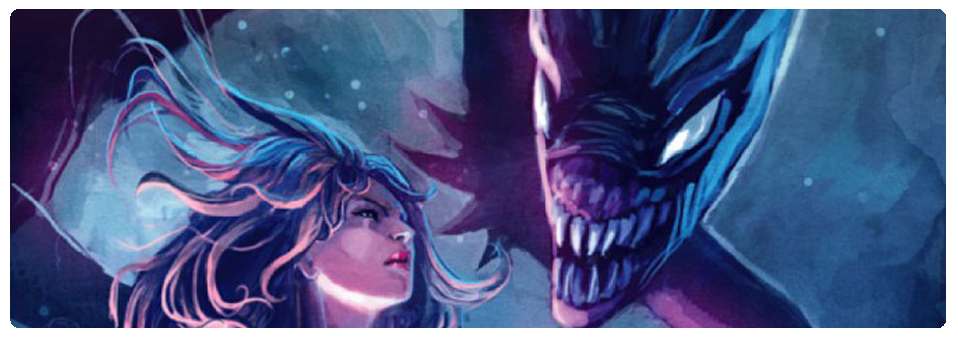Judas #1
Written by, Jeff Loveness
Art by, Jakub Rebelka
and letters by, Colin Bell
Reviewed by Tom Zimm
Recap
This issue retells the biblical story of the denial of Christ from the perspective of Judas Iscariot. Judas tells us his backstory. He was raised by a loving mother. She provided attuned responses to his needs and taught him right from wrong. Judas relates, “She believed.” However, she died. When she died, a part of Judas died. Enter Jesus. Judas was drawn to Jesus and his message of hope. However, he started to hear another voice; this voice possessed truth for Judas and over-ruled the voice of Jesus. This voice questioned the goodness of God given the amount of pain there is in the world.
Judas betrays Jesus for 30 gold coins. Afterward, he is overcome with grief. He returns to the religious leaders and tries to give the money back. They refuse to accept the money. Judas is overcome by grief and hangs himself. After Judas hangs himself, he goes to a place with demonic, or supernatural, creatures with multiple wings and numerous eyes all over their body. Judas feels betrayed by Jesus who preached a gospel of hope and forgiveness yet sent him to this awful place. Judas thinks, “But you sent me here and I never mattered to you.” It’s the absence of choice and restricted thinking that reveals his perspective. He’s isolated and discarded.
Impressions:
The book presents problems Judas has with predestination, God’s goodness, and what God’s omnipotence says about God given that there is the evil in the world. For example, Judas asks “Did you know it would be me?” In other words, God, Do you know me? Am I important in your eyes? How often have we asked this about each other, our government, or the human race. If we care about each other then why? Fill in the blank.
Judas becomes isolated from society and feels like he is on the margins, forgotten, and discarded. The transformation occurs when he loses a loved one. Although Jesus preaches a gospel of hope, Judas continues to feel alone. The story captures the danger isolation presents to individuals through the linear and inflexible pattern of thinking in Judas Iscariot. For example, Judas asks, “If God knows all then did he know I would betray him?” And, “Did he choose me to betray him?” Judas is predicting future events and also revising past experiences based on current pain. For me, this story highlights the importance that we have as a society to rid ourselves of fear of the unknown in others. The solution to isolation is compassion and acceptance.











